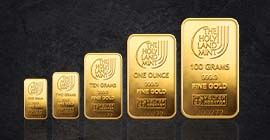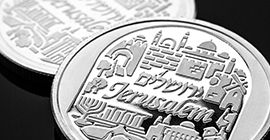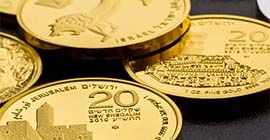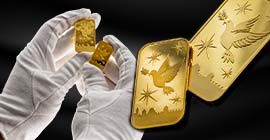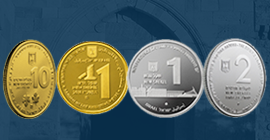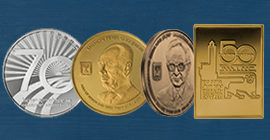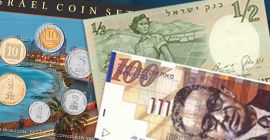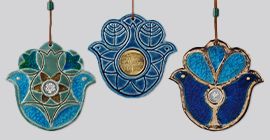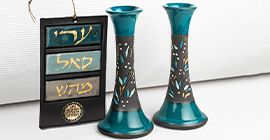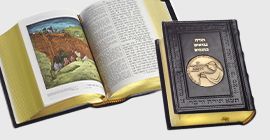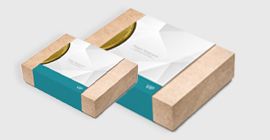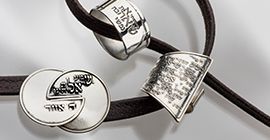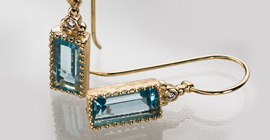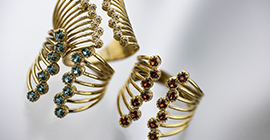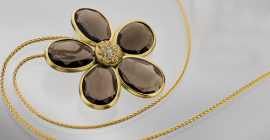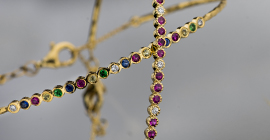Coin collectors? Your coins are worth a lot of money
Although the community of coin collectors in Israel is not large, the number of people who come across valuable old coins in their daily life is greater than you think. Did you happen to inherit a box full of old coins? Have you found some old coins in your apartment and are debating what the best next step is? Once you discover the value of your coins, you may be inspired to become a coin collector yourself!
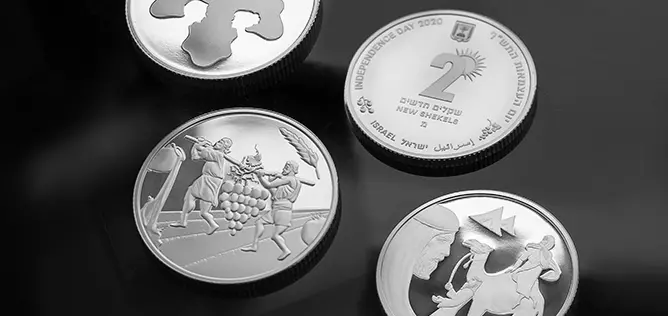 Pictured: Silver Coins issued by The Bank of Israel Biblical Art series
Pictured: Silver Coins issued by The Bank of Israel Biblical Art series
Who is considered a coin collector?
Some people define coin collecting as just a hobby that they enjoy, while others collect coins as a source of investment. There are even collectors that have created an occupation for themselves and have a primary source of income that comes directly from coin collecting. What they all have in common is the fact that they are considered "collectors" as they collect coins, understand their history, and in turn, play an important role in preserving and passing on knowledge to future generations.
For some collectors, their main occupation is finding and collecting rare coins from different countries, while other collectors are engaged in collecting banknotes, medals, and rare numismatic items. Either way, there is no standard requirement to be considered a coin collector as anyone can be deemed a collector simply due to the fact that they own coins from the past.
What is the difference between amateur and professional coin collectors?
A person rarely chooses to become a coin collector professionally without having dabbled in it previously as a hobby. Of course, some people enter the field with the desire to make money, but regardless of the end objective, individuals are defined at the beginning of their journey as amateur collectors. What differentiates amateur and professional coin collectors is the fact that professionals know how to assess the value of the coin themselves, understand how to associate coins with their history, and typically focus on one time period or coin style. For example, Israeli coins, coins of the Roman Empire or coins from certain time periods.
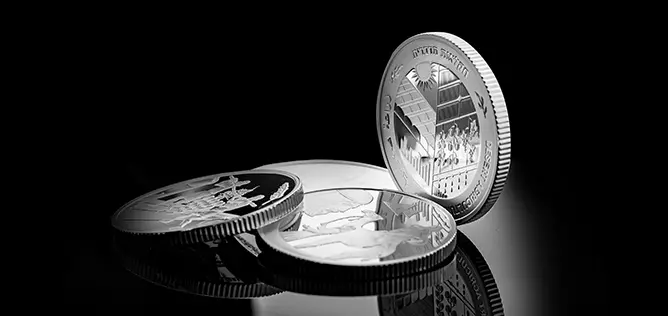 Pictured: Silver Coins issued by The Bank of Israel
Pictured: Silver Coins issued by The Bank of Israel
Valuation of the coin
Of course, in order to know how to estimate the value of the currency, you need to understand the coin's history, their market prices and the current price of the raw material they are made of (gold, silver, etc.) The following are some of the main characteristics that affect the value of the coin:
- Age - One of the factors that will determine the monetary value is the age of the coin. The oldest coins are not necessarily always the most expensive, but oftentimes old coins are rarer and therefore, their value increases.
- Condition - The current state of the coin is also an important factor. If the coin is in good condition and preserved, its value will be significantly higher than an identical item that is relatively in worse condition.
- Quantity - The amount of coins issued of each type also affects the value of the coin. If in the past, only a small number of coins were produced, their value today will be higher as they are more difficult to obtain and not as much volume of the same coin out there.
- Rarity - The availability of the coin for purchase within the market has an impact on its value. If a particular coin can be easily found and purchased, its price will be lower compared to a rare coin that is difficult to get your hands on. This is the basic concept of supply and demand.
- Series - Although this does not affect the value of a single coin, in many cases having a collection of a series of coins significantly increases the value of each of the coins if they are sold together.
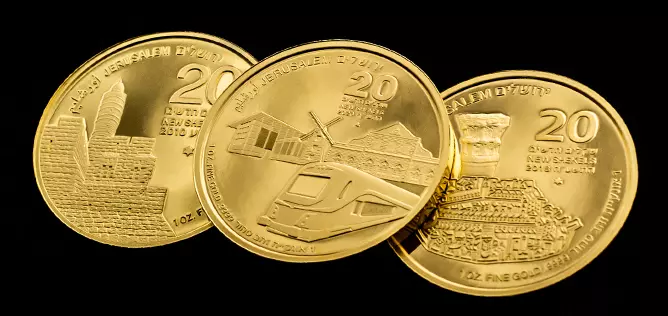 Pictured: "Jerusalem of Gold" Bullion Coin Series - Legal Tender issued by The Bank of Israel (right to left - The Cardo Coin, The Train to Jerusalem Coin, Tower of David Coin)
Pictured: "Jerusalem of Gold" Bullion Coin Series - Legal Tender issued by The Bank of Israel (right to left - The Cardo Coin, The Train to Jerusalem Coin, Tower of David Coin)
Coin quality grades
- Basal – A piece of metal that can be identified as once a coin. This is typically used for coins that are of the lowest grade.
- Fair (Fr) – The type of coin can be identified, and it is possible to identify the date of issue as well.
- Almost Good (AG) - The issue date is legible, however other parts are completely worn.
- Good (G) - The details, design, and date are legible, however the coin is very worn.
- Very Good (VG) - The design and date are clear, however details are missing. The rim of the coin (the band around the edge of the coin that is slightly raised from the face of the coin) must be visible.
- Fine (F) - You can see all the main details when they are intact. In this case, "Fine" describes the condition of the coin - not the degree of purity described above.
- Very Fine (VF) - You can see all the main details when they are intact, and additional details beyond that.
- Extremely Fine (XF or EF) - Light wear of the raised details and a slight shine from the mint.
- Almost Uncirculated (AU) - Slight traces of wear on the raised details, and half of the original luster is present.
- Uncirculated (UNC) - No sign of wear,however there can be cuts or marks.
- Proven (Proof or PF) – Coins minted specifically for collectors. The face of the coin is usually as smooth as a mirror. Some series can have coins that have been sandblasted and have a matte color (matte proof).
Copyright: Wikipedia, "Coin Grading" entry.
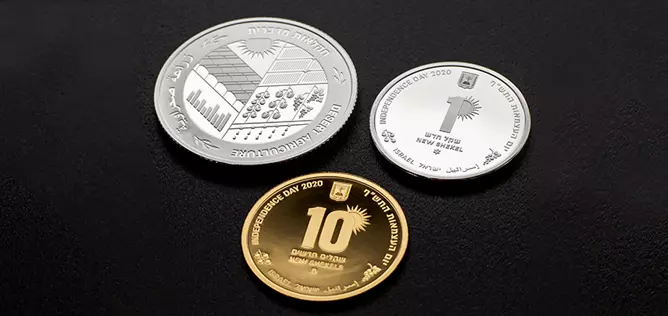 Pictured: Israel's Independence Day Coins - Desert Agriculture in Israel Legal Tender issued by The Bank of Israel
Pictured: Israel's Independence Day Coins - Desert Agriculture in Israel Legal Tender issued by The Bank of Israel
Tips for the beginner coin collector
Interested in starting to collect coins yourself? Here are some important things to know prior to purchasing your first coin for collecting or investing.
- Purchase from reliable sources - Keep in mind that there are many unethical sellers in the market. Therefore, we recommend buying coins only from trusted sources who are recognizable in the industry, and have a good reputation.
- Study the market - When purchasing gold or silver coins as collectibles, you may be less interested in the market value at the moment. However, it is important to know which coins are more desirable and which are less in demand, and what the price range of each of them is. This knowledge will allow you to understand which currency market you want to enter.
- Equipment and storage - Purchasing a coin is the first step, but storing and handling it in a way that will preserve its value, and even increase its value over time, is a critical step that every coin collector should take. Position yourself to have the necessary equipment to handle coins and learn how to store coins so that they will not be destroyed or damaged over time. If you buy high-value coins, it is recommended to store them in a proper safe and take precautions to keep these valuable items safe.
Interested to start collecting coins? Buy your first coin or expand your collection with us.

